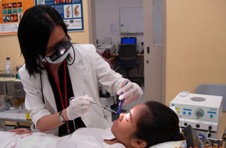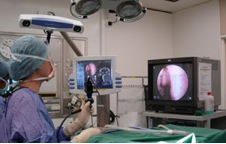The diagnostic options are as follows:
Skin Prick Test (SPT)
SPT is performed on the forearm, to test for Inhalant Allergy. Some of the common inhalant allergens are house dust mites, dog and cat dander, cockroach, mold, grass and tree pollens. SPT is usually well tolerated, even in young children, and results are ready in twenty minutes.
Intradermal Provocative Food Test (IPFT)
This is an allergy test for Cyclical (non IgE-medicated) Food Allergy. It involves injecting small amounts of diluted food extracts onto the upper arm, and measurements of the reactions will be recorded at regular intervals. The whole process takes about three hours to complete, including explanation of test results.
Radioallergosorbent Test (RAST)
This is an allergy test that involves collecting blood. It may be used to test for either Inhalant Allergy or Fixed (IgE-mediated) Food Allergy. Results could take up to two weeks to be ready. A blood sample for RAST is usually taken when skin conditions such as severe eczema or dermographic skin prevent accurate testing, or when the patient is taking medications (such as antihistamines, sedatives or antidepressants) that interfere with accurate testing.
Allergy Counselling
The management of Inhalant Allergy also includes counselling of proper environmental control and/or advice on allergy products available. Based on the results of the allergy tests, the Allergy Nurses may offer advice on a range of measures that the patients could adopt to help reduce contact with, or avoid what triggers the allergy symptoms.
Diet Counselling
For patients who have undergone the IPFT, the Allergy Nurse assists them to make sense of their test results, and explains the need for correct diet management. This is important if they hope to relieve their existing symptoms and achieve an improved quality of life. A change in their usual eating habits may be inevitable, and they are encouraged to practice avoidance of the allergic food items for a sustained period of time.
Immunotherapy
This is a treatment that consists of gradually re-accustoming the body to the allergen responsible for the allergic reactions, so as to modify (or perhaps entirely suppress) the body’s response.
This involves two successive phases:
- An initiation phase during which the dose of the allergen is gradually stepped up.
- The maintenance phase during which the maximum tolerated dose is administered for an extended period of time (at least three years).
- Immunotherapy may be administered via subcutaneous injections or taken orally (sublingual).



















